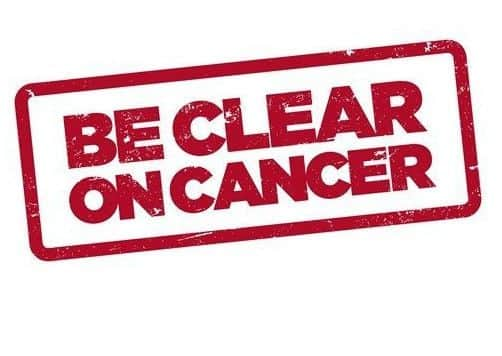How to spot a key sign of bladder and kidney cancers
and live on Freeview channel 276
People are being encouraged to ‘look before you flush’ and visit a GP without delay if you notice blood in your pee, even if it’s just once.
Blood in pee is a key symptom of bladder and kidney cancer, yet only 20 per cent of those most at risk in the South East – aged 50 or over – check the colour of their pee every time they go to the toilet.
Advertisement
Hide AdAdvertisement
Hide AdIf people don’t look before they flush, they may not notice blood in their pee.


Every year around 19,100 new cases of bladder and kidney cancer are diagnosed in England, causing around 8,000 deaths.
Locally there are around 74 new cases of bladder and kidney cancer in Arun and 44 in Worthing each year. Sadly 32 people in Arun die as a result of these cancers, and 20 people in Worthing each year.
A new short film featuring TV doctor Dr Dawn Harper is being released as part of the campaign.
Advertisement
Hide AdAdvertisement
Hide AdThe film shows what to look out for as the colour of blood in your pee can vary – from very diluted, to bright red or even dark brown, like the colour of weak black tea.
Blood in pee is a symptom in almost two thirds, 64 per cent, of all bladder cancers and around a fifth, 18 per cent, of kidney cancers. Blood might not appear every time, so it is important that people seek medical help even if you notice it just once.
Worryingly, around 49 per cent of those surveyed said they would not seek medical advice if they saw blood in their pee just once, however, 45 per cent of those surveyed said they would wait and see if it happened again, potentially putting off a vital diagnosis.
Early diagnosis is critical; 84 per cent of those diagnosed with kidney cancer and 77 per cent of those diagnosed with bladder cancer at the earliest stage will live for at least five years. At a late stage such as stage four this drops to ten per cent and nine per cent respectively.
Advertisement
Hide AdAdvertisement
Hide AdGeraldine Sinfield, bladder cancer survivor and supporter of the Urology Foundation, said: “I noticed blood in my pee in late 2013. I knew something was wrong and made an appointment to see my doctor straight away. He referred me to hospital for tests which showed I had bladder cancer. I’m so glad I acted quickly because my cancer was caught early and just six months after my treatment, my husband and I went sailing around Britain, something I never thought would be possible. Recently, at my last appointment, my doctor was so pleased with my progress that I was told I would no longer need to have annual checkups, which is a huge relief.”
The Be Clear on Cancer campaign encourages people to know and look out for the signs of bladder and kidney cancer.
For further information about the signs and symptoms of bladder and kidney cancer visit www.nhs.uk/be-clear-on-cancer
---
Advertisement
Hide AdAdvertisement
Hide Ad---
• Benefit from an ongoing discount on your Herald or Littlehampton Gazette by joining our voucher membership scheme. Once you’ve subscribed we’ll send you dated vouchers which can be exchanged for your paper at any news outlet. To save money on your Herald or Littlehampton Gazette simply click here.